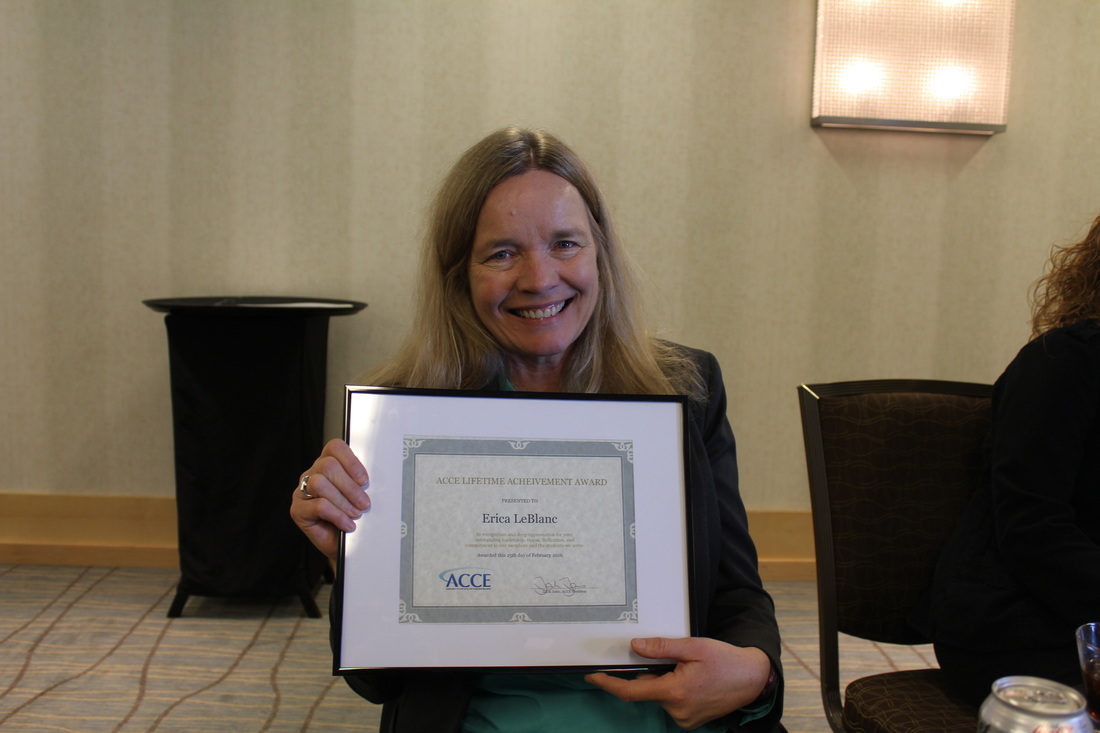Per the press release from the California Community College Chancellor's Office, Erik Skinner has been named Acting Chancellor. The full announcement may be found below.
SACRAMENTO, Calif. - The California Community Colleges Board of Governors today appointed Deputy Chancellor Erik Skinner as acting chancellor for the California Community Colleges beginning April 2. Skinner will temporarily replace Chancellor Brice W. Harris who will retire after 45 years in public service. In a separate action, the board also awarded Harris with the honorary title of Chancellor Emeritus of the California Community Colleges.
"Erik Skinner brings valuable knowledge, skill and proven experience to the role of acting chancellor," said California Community Colleges Board of Governors President Geoffrey L. Baum. "He is a respected leader and the Board of Governors is confident in his ability to guide the California Community Colleges and Chancellor's Office during this transition."
Skinner was promoted in 2013 to serve as deputy vice chancellor for the Chancellor's Office. He oversees and coordinates the efforts of the following divisions: Academic Affairs; Student Services and Special Programs; Economic Development and Workforce Preparation; and College Finance and Facilities Planning. He served as executive vice chancellor from 2010 until his promotion, and was previously acting chancellor in 2012 before Chancellor Harris was tapped for the role.
Skinner joined the Chancellor's Office in 2007, when he was appointed vice chancellor for College Finance and Facilities Planning. He represented the community college system in the state budget process, advocating for additional resources to support the state's community college districts and colleges. In addition, Skinner oversaw the system's budget and accounting processes; apportionment of state and federal resources to local community college districts; and assistance to community college districts for fiscal and business operations.
The Board of Governors is currently engaged in a national search for a permanent new chancellor for California Community Colleges. The board plans to have the new chancellor in place by the beginning of the 2016-17 academic year, according to Baum.
Chancellor Harris will return to retirement after more than four decades in higher education. Prior to being selected as chancellor of the California Community Colleges, he retired in 2012 after 16 years as chancellor of the Los Rios Community College District, the longest serving chancellor in the district's history. He was also president of Fresno City College and a faculty member and vice chancellor in the Metropolitan Community College system in Kansas City, Mo.
"Brice Harris has been an extraordinary leader for California Community Colleges," said President Baum. "He has devoted his career to improving student success and access, both in California and across the country. The progress he has made during his tenure in the Chancellor's Office has advanced our system tremendously and made the California Community Colleges the most transparent and accountable system of higher education in the country. We are deeply grateful for his service and are pleased to bestow the title of 'Chancellor Emeritus' in appreciation for his unwavering commitment and dedication to our state's higher education system."
The California Community Colleges is the largest system of higher education in the nation composed of 72 districts and 113 colleges serving 2.1 million students per year. Community colleges supply workforce training, basic skills education in English and math, and prepare students for transfer to four-year institutions. The Chancellor's Office provides leadership, advocacy and support under the direction of the Board of Governors of the California Community Colleges. For more information about the community colleges, please visit http://californiacommunitycolleges.cccco.edu/, https://www.facebook.com/CACommColleges, or https://twitter.com/CalCommColleges.
SACRAMENTO, Calif. - The California Community Colleges Board of Governors today appointed Deputy Chancellor Erik Skinner as acting chancellor for the California Community Colleges beginning April 2. Skinner will temporarily replace Chancellor Brice W. Harris who will retire after 45 years in public service. In a separate action, the board also awarded Harris with the honorary title of Chancellor Emeritus of the California Community Colleges.
"Erik Skinner brings valuable knowledge, skill and proven experience to the role of acting chancellor," said California Community Colleges Board of Governors President Geoffrey L. Baum. "He is a respected leader and the Board of Governors is confident in his ability to guide the California Community Colleges and Chancellor's Office during this transition."
Skinner was promoted in 2013 to serve as deputy vice chancellor for the Chancellor's Office. He oversees and coordinates the efforts of the following divisions: Academic Affairs; Student Services and Special Programs; Economic Development and Workforce Preparation; and College Finance and Facilities Planning. He served as executive vice chancellor from 2010 until his promotion, and was previously acting chancellor in 2012 before Chancellor Harris was tapped for the role.
Skinner joined the Chancellor's Office in 2007, when he was appointed vice chancellor for College Finance and Facilities Planning. He represented the community college system in the state budget process, advocating for additional resources to support the state's community college districts and colleges. In addition, Skinner oversaw the system's budget and accounting processes; apportionment of state and federal resources to local community college districts; and assistance to community college districts for fiscal and business operations.
The Board of Governors is currently engaged in a national search for a permanent new chancellor for California Community Colleges. The board plans to have the new chancellor in place by the beginning of the 2016-17 academic year, according to Baum.
Chancellor Harris will return to retirement after more than four decades in higher education. Prior to being selected as chancellor of the California Community Colleges, he retired in 2012 after 16 years as chancellor of the Los Rios Community College District, the longest serving chancellor in the district's history. He was also president of Fresno City College and a faculty member and vice chancellor in the Metropolitan Community College system in Kansas City, Mo.
"Brice Harris has been an extraordinary leader for California Community Colleges," said President Baum. "He has devoted his career to improving student success and access, both in California and across the country. The progress he has made during his tenure in the Chancellor's Office has advanced our system tremendously and made the California Community Colleges the most transparent and accountable system of higher education in the country. We are deeply grateful for his service and are pleased to bestow the title of 'Chancellor Emeritus' in appreciation for his unwavering commitment and dedication to our state's higher education system."
The California Community Colleges is the largest system of higher education in the nation composed of 72 districts and 113 colleges serving 2.1 million students per year. Community colleges supply workforce training, basic skills education in English and math, and prepare students for transfer to four-year institutions. The Chancellor's Office provides leadership, advocacy and support under the direction of the Board of Governors of the California Community Colleges. For more information about the community colleges, please visit http://californiacommunitycolleges.cccco.edu/, https://www.facebook.com/CACommColleges, or https://twitter.com/CalCommColleges.



 RSS Feed
RSS Feed
